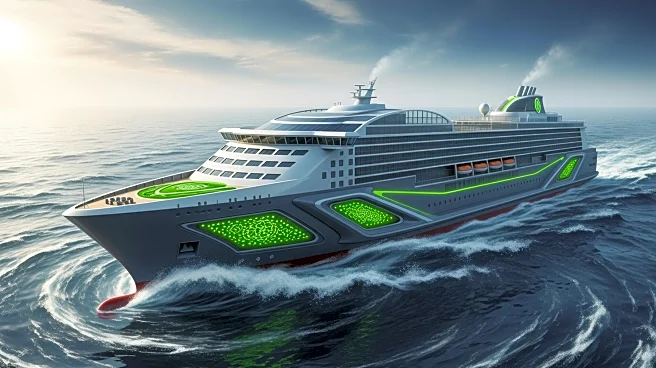What's Happening?
Cleaner-fuel burning ships accounted for 37% of cargo vessel orders in the first 10 months of 2025, consistent with the previous year, as buyers remain uncertain about the timing of global emissions regulations.
Data from AXSMarine shows a decrease in overall gross tonnage ordered, with alternative fuel ships making up a significant portion. The International Maritime Organization (IMO) recently postponed a decision on carbon-reduction targets, influenced by pressure from the United States and Saudi Arabia. Major shipping lines like Maersk and Hapag-Lloyd continue efforts to reduce emissions, with liquefied natural gas being the dominant alternative fuel.
Why It's Important?
The shipping industry's commitment to cleaner vessels is crucial for reducing its environmental impact, as maritime shipping accounts for about 3% of global greenhouse gas emissions. The delay in setting global carbon-reduction targets by the IMO creates uncertainty, potentially affecting investment decisions and the pace of adopting cleaner technologies. However, the continued interest in alternative fuels indicates a shift towards sustainability, which could drive innovation and regulatory changes in the future. The industry's actions are vital for meeting international climate goals and reducing the carbon footprint of global trade.
What's Next?
The shipping industry is likely to adopt a 'wait-and-see' approach until the IMO finalizes its carbon-reduction framework. In the meantime, companies may continue investing in cleaner technologies to stay ahead of potential regulations. The decision's postponement could lead to increased lobbying and negotiations among member countries, with stakeholders advocating for clearer guidelines and incentives. The industry will need to balance economic considerations with environmental responsibilities, potentially influencing future vessel designs and operational strategies.










